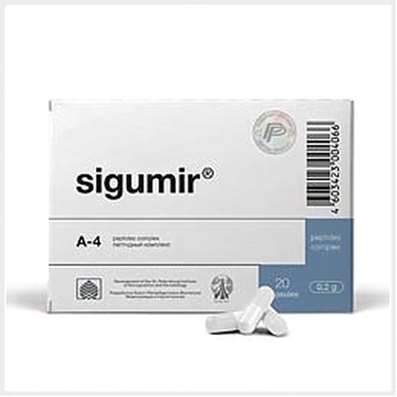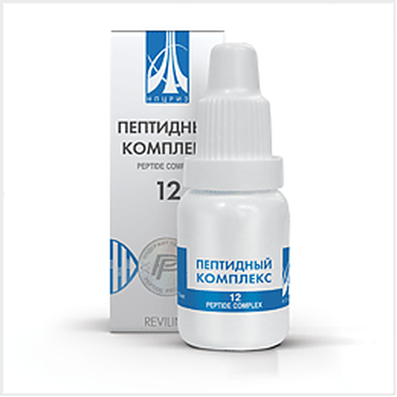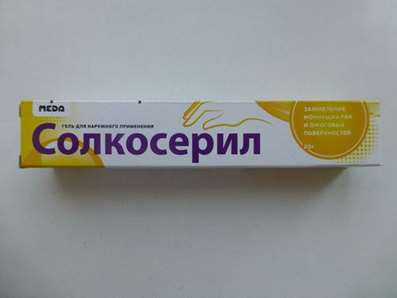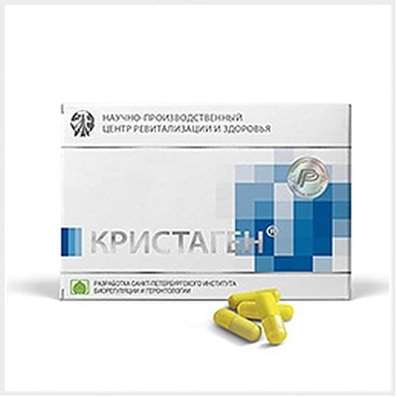Instruction for use: Asetylsalicylic acid + Glycine
I want this, give me price
Trade name of the drug – Godasal, Alka-Prim
The Latin name of the substance Acetylsalicylic acid + Glycine
Acidum acsetylsalicylicum+Glycinum (genus. Acidi acsetylsalicylici+Glycini)
Pharmacological group of substance Acetylsalicylic acid + Glycine
NSAID - Salicylic acid derivatives in combinations
The nosological classification (ICD-10)
J06 Acute upper respiratory tract infections of multiple and unspecified locations: Frequent colds of viral diseases; Infections of ENT organs; Acute respiratory illness of influenza nature; Pain for colds; Acute catarrhal disease; Cold; Colds; Respiratory infection; Seasonal catarrhal disease; Seasonal colds; Pain in infectious and inflammatory diseases of the upper respiratory tract; Bacterial infections of the upper respiratory tract; Bacterial infections of the respiratory system; Viral respiratory disease; Viral respiratory tract infections; Inflammatory disease of the upper respiratory tract; Inflammatory diseases of the upper respiratory tract with difficult to separate sputum; Inflammatory respiratory disease; Secondary infections for colds; Difficult sputum separation in acute and chronic respiratory diseases; Upper respiratory tract infections; Infections of the upper respiratory tract; Respiratory tract infections; Respiratory and lung infections; Infectious-inflammatory diseases of the upper respiratory tract; Infectious-inflammatory diseases of the upper respiratory tract and ENT organs; Infectious-inflammatory diseases of the upper respiratory tract in adults and children; Infectious-inflammatory diseases of the upper respiratory tract; Infectious inflammation of the respiratory tract; Respiratory tract infection; Qatar upper respiratory tract; Catarrh of the upper respiratory tract; Catarrhal phenomena from the upper respiratory tract; Cough in diseases of the upper respiratory tract; Cough for colds; ARVI; ARI; ARI with phenomena of rhinitis; Acute respiratory infection; Acute infectious-inflammatory disease of upper respiratory tract; Acute respiratory disease; Persecution in the throat or nose; Respiratory and viral infections; Respiratory diseases; Respiratory infections; Recurrent respiratory tract infections; Secondary infections with influenza; Influenza states; Feverish conditions for influenza
J22 Acute respiratory infection of lower respiratory tract, unspecified: Bacterial respiratory disease; Bacterial infections of the lower respiratory tract; Bacterial infections of the respiratory system; Viral respiratory disease; Viral respiratory tract infections; Inflammatory respiratory disease; Difficult sputum separation in acute and chronic respiratory diseases; Respiratory tract infections; Respiratory and lung infections; Lower respiratory tract infections; Infections of the lower respiratory tract; Infectious inflammation of the respiratory tract; Infectious diseases of the respiratory tract; Infectious diseases of the lungs; Infectious diseases of the respiratory system; Respiratory tract infection; Cough for colds; Pulmonary infection; Acute respiratory tract infection; Acute respiratory viral infection; Acute inflammatory airway disease; Acute respiratory disease; Respiratory infection; Respiratory and viral infections; Respiratory syncytial viral infection in young children; Respiratory diseases; Respiratory infections
K30 Dyspepsia: Fermentation dyspepsia; Hyperacid indigestion; Putrefactive indigestion; Dyspepsia; Dyspepsia of nervous origin; Dyspepsia in pregnant women; Dyspepsia fermentation; Dyspepsia putrefactive; Dyspepsia medication; Dyspepsia due to diseases of the digestive system; Dyspepsia due to impaired motility of the gastrointestinal tract; Dyspepsia due to unusual food or overeating; Dyspeptic phenomena during pregnancy; Dyspeptic Syndrome; Gastric indigestion; Delayed emptying of the stomach; Delayed digestion; Idiopathic indigestion; Acid dyspepsia; Disturbance of the upper GI tract motility; Indigestion; Nervous indigestion; Non-ulcer dyspepsia; The feeling of heaviness in the stomach after eating; Postprandial functional dyspepsia; The processes of fermentation in the intestine; Stomach upset; Gastrointestinal disorders; Digestive disorders; Disorders from the digestive tract; Stomach upset; Indigestion disorder; Indigestion in infants; Symptoms of dyspepsia; The syndrome of putrefactive dyspepsia; Syndrome of putrefactive dyspepsia in infants; Syndrome of insufficiency of digestion; Syndrome of nonulcer dyspepsia; Toxic indigestion; Functional dyspepsia; Functional indigestion; Chronic indigestion; Chronic episodes of dyspepsia; Essential dyspepsia; Dyspeptic disorder
K31.9 Disease of stomach and duodenum, unspecified: Atrophy of gastric mucosa; Perforation in the peptic ulcer; Attenuation of intestinal motility; Violation of the functions of the stomach; Deterioration of bowel motility; Functional gastropathy; Inflammation of the gastric mucosa due to Helicobacter pylori; Gastrointestinal diseases; Dysfunction of the gastrointestinal tract; Disorders of the secretory function of the stomach; Chronic inflammatory disease of the upper gastrointestinal tract associated with Helicobacter pylori
M25.5 Pain in the joint: Arthralgia; Pain syndrome in musculo-articular diseases; Pain syndrome in osteoarthritis; Pain syndrome in osteoarthritis; Pain syndrome in acute inflammatory diseases of the musculoskeletal system; Pain syndrome in chronic inflammatory diseases of the musculoskeletal system; Pain in the joints; Soreness of the joints; Soreness of joints in severe physical exertion; Painful inflammatory joint damage; Painful conditions of the musculoskeletal system; Painful joint conditions; Painful traumatic affection of joints; Pain in the musculoskeletal system; Pain in Shoulder Joints; Pain in the joints; Joint pain; Joint pain with injuries; Musculoskeletal pain; Pain with osteoarthritis; Pain in the pathology of the joints; Pain in rheumatoid arthritis; Pain in chronic degenerative bone diseases; Pain in chronic degenerative joint diseases; Bone-joint pain; Joint pain; Arthritic pain of rheumatic origin; Articular pain syndrome; Joint pains; Rheumatic pain
M79.1 Myalgia: Myofascial pain syndromes; Pain syndrome in musculo-articular diseases; Pain syndrome in chronic inflammatory diseases of the musculoskeletal system; Pain in the muscles; Tenderness of muscles; Muscular soreness in severe physical exertion; Painful conditions of the musculoskeletal system; Pain in the musculoskeletal system; Pain in the muscles; Pain at rest; Muscle aches; Muscle pain; Musculoskeletal pain; Myalgia; Muscle pain; Muscle pain at rest; Muscle pain; Muscular pain of non-rheumatic origin; Muscle pain of rheumatic origin; Acute muscle pain; Rheumatic pain; Myofascial syndrome; Fibromyalgia
R10.1 Pain localized in the upper abdomen: Pain in the stomach; Pain in the stomach; Pain in the upper abdomen; Pain in the epigastric region; Epigastric pain; Pain syndrome in acute pancreatitis; Pain in the stomach; Pain in epigastrium; Pain in acute gastritis with high acidity; Pain with chronic gastritis with high acidity; Gastralgia; Discomfort and pain in epigastrium; Gastric discomfort; Feeling of discomfort in the epigastric region; Severity in the epigastric region; Epigastric pains; Pain in the epigastric region; Pain syndrome in pancreatitis; Discomfort and pain in the epigastric region
R12 acid indigestion
R50 Fever of unknown origin: Malignant hyperthermia; Hyperthermia malignant
R51 Headache: pain in the head; cephalgia; Pain in sinusitis; Pain in the neck; Pain headache; Headache vasomotor origin; Headache vasomotor origin; Headache with vasomotor disturbances; Headache; Neurological Headache; Continuous headache
R52.9 Unspecified pain: Pain after cholecystectomy; Pain shooting; Non-malignant pain syndrome; Obstetric and gynecological pain; Pain syndrome; Pain syndrome in the postoperative period; Pain syndrome in the postoperative period after orthopedic operations; Painful syndrome of inflammatory genesis; Pain syndrome of non-oncological genesis; Pain syndrome after diagnostic procedures; Pain syndrome after the diagnostic intervention; Pain syndrome after operations; Pain syndrome after surgery; Pain syndrome after orthopedic surgery; Pain syndrome after trauma; Pain syndrome after removal of hemorrhoids; Pain syndrome after surgery; Pain syndrome with inflammation of non-rheumatic nature; Pain syndrome with inflammatory lesions of the peripheral nervous system; Pain syndrome in diabetic neuropathy; Pain syndrome in acute inflammatory diseases of the musculoskeletal system; Pain syndrome in the pathology of tendons; Pain syndrome with smooth muscle spasms; Pain syndrome with smooth muscle spasms (renal and biliary colic, intestinal spasm, dysmenorrhea); Pain syndrome with spasms of smooth muscles of internal organs; Pain syndrome with spasms of smooth muscles of internal organs (renal and biliary colic, intestinal spasm, dysmenorrhea); Pain syndrome with injuries; Pain syndrome with injuries and after surgery; Pain syndrome in chronic inflammatory diseases of the musculoskeletal system; Pain syndrome with duodenal ulcer; Pain syndrome with gastric ulcer; Pain syndrome with peptic ulcer of stomach and duodenum; Painful sensations; Pain during menstruation; Pain syndromes; Painful conditions; Painful leg fatigue; Gum pain when wearing dentures; The pain of exit points of cranial nerves; Painful irregular menstruation; Painful dressings; Painful muscular spasm; Painful growth of teeth; Pain in lower limbs; Pain in the area of the operating wound; Pain in the postoperative period; Pain in the body; Pain after diagnostic interventions; Pain after orthopedic surgery; Pain after surgery; Pain in the flu; Pain in diabetic polyneuropathy; Pain in burns; Pain in intercourse; Pain during diagnostic procedures; Pain during therapeutic procedures; Pain for colds; Pain with sinusitis; Pain in case of injury; Pain of a traumatic nature; Pain in the postoperative period; Pain after Diagnostic Interventions; Pain after sclerosing therapy; Pain after surgery; Postoperative pain; Postoperative and post-traumatic pain; Post-traumatic pain; Pain when swallowing; Pain in infectious and inflammatory diseases of the upper respiratory tract; Pain with burns; Pain with traumatic muscle damage; Pain in case of injury; Pain when extracting a tooth; Pain of traumatic origin; Pain caused by spasm of smooth muscles; Severe pain syndrome; Severe pain syndrome of traumatic origin; Postoperative pain; Postoperative pain syndrome; Post-traumatic pain; Post-traumatic pain syndrome; Torpid pain syndrome; Traumatic pains; Moderate pain; Moderately expressed pain syndrome; Moderate pain syndrome; Polyartralgia in polymyositis
Model clinical-pharmacological article 1
Pharmacotherapy. Combined drug, the effect of which is due to its constituent components - ASA (suppresses the synthesis of Pg) and glycine (reduces the acidity of gastric juice to pH 6-7 and reduces the irritating effect of ASA on the mucosa of the gastrointestinal tract). The action begins in 30 minutes, reaches a maximum after 1-3 hours and lasts 3-6 hours.
Pharmacokinetics. After oral administration, it is rapidly absorbed from the digestive tract. It is excreted by the kidneys (80-100%) for 24-72 hours.
Indication. Pain syndrome of mild and moderate intensity (including headache, myalgia, arthralgia), hyperthermia (including catarrhal diseases, viral infections), dyspepsia (including heartburn, burning in epigastrium, gastralgia, in tons Caused by overeating or abuse of ethanol).
Contraindications. Hypersensitivity to NSAID (including history), blood clotting disorders (hemophilia, thrombocytopenia), deficiency of glucose-6-phosphate dehydrogenase, bronchial asthma, polyps of the nose, lactation, children's age (up to 12 years).
Carefully. Peptic ulcer of stomach and duodenum in the anamnesis, chronic renal failure, elderly age.
Dosing. Inside, during meals, pre-dissolved in 3/4 cup of boiled (not hot) water, 1-2 tablets 3-4 times a day.
Side effect. From the CVS (cardio-vascular system) and the system of hemostasis: bleeding, changes in the cellular composition of the blood, collapse.
From the digestive system: nausea, vomiting, decreased appetite, abdominal pain.
Allergic reactions: urticaria, angioedema, bronchospasm, shock (until loss of consciousness), lacrimation, allergic rhinitis.
Overdose. Symptoms: noise and ringing in the ears.
Treatment: symptomatic.
Interaction. Strengthens the effect of oral anticoagulants and hypoglycemic drugs, insulin, methotrexate, other NSAID, GCS, valproic acid, ethanol.
Weaken the effect of sulfinpyrazone, diflunizal, fenoprofen, ibuprofen, indomethacin, piroxicam, naproxen, sulindac, and also drugs that block tubular secretion.
Myelotoxic drugs increase the manifestation of hematotoxicity of the drug.
Special instructions. Application in pregnancy and lactation is possible if the expected effect of therapy exceeds the potential risk to the fetus.
If it is necessary to prescribe the drug during lactation, breastfeeding should be stopped.

 Cart
Cart





